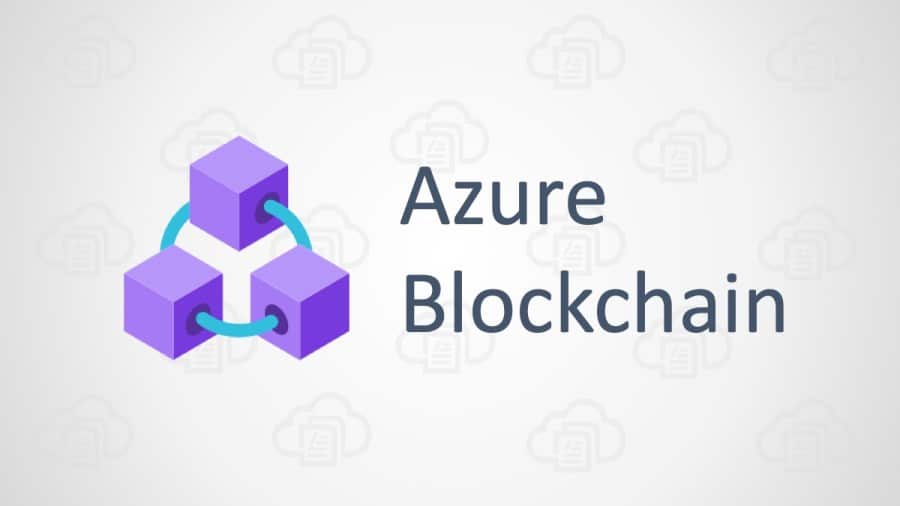Microsoft Shuts Down Azure Blockchain Service, Urges Clients to Transition by September
Microsoft has quietly announced the closure of its Azure Blockchain service, effective September, providing existing customers with a four-month window to transition to alternative service providers. This unexpected move affects several high-profile corporate clients, prompting a significant shift in the blockchain-as-a-service (BaaS) landscape.
Immediate Halt to New Deployments
Effective immediately, Microsoft will cease accepting new deployments on its Azure Blockchain platform. The company made this decision without an official detailed explanation, leaving many to speculate about the underlying reasons. Despite the shutdown, Azure Blockchain has been a critical infrastructure component for numerous large enterprises, including JP Morgan, GE Aviation, Singapore Airlines, Starbucks, and Xbox.
Impact on Major Corporations
The Azure Blockchain service has been instrumental for these corporations in developing and managing their blockchain initiatives. With its shutdown, these companies must seek alternative solutions to maintain their blockchain operations and projects. The abrupt closure has raised concerns about the stability and continuity of blockchain services provided by major tech firms.
Joseph Lubin and ConsenSys Step In
In response to Microsoft’s closure, Joseph Lubin, CEO and Founder of ConsenSys, has welcomed the affected Azure Blockchain clients. ConsenSys, a leading blockchain technology company, aims to provide a seamless transition for these organizations by expanding its relationship with Microsoft. Lubin emphasized that this collaboration will enable businesses to leverage ConsenSys Quorum, an enterprise-grade managed blockchain service.
Joseph Lubin stated, “We understand the challenges faced by organizations during this transition and are committed to offering robust solutions through ConsenSys Quorum. Our goal is to ensure that businesses can effortlessly set up and deploy their blockchain applications without disruption.”
The Imminent Closure of Azure Blockchain
The announcement of Azure Blockchain’s shutdown garnered public attention, especially through a Twitter post that highlighted the sudden nature of the closure. Launched in 2015 as a sandbox-style service, Azure Blockchain evolved significantly over six years. Initially developed on Ethereum in partnership with ConsenSys, it transitioned to a fully managed BaaS preview in late 2019.
Microsoft’s original vision for Azure Blockchain was to create a certified blockchain marketplace, enabling customers to discover and integrate various blockchain technologies and value-added services. However, the recent closure suggests a strategic pivot away from maintaining its blockchain services amidst a competitive and rapidly evolving market.
Contradictions in the Closure Announcement
Despite the official closure, Microsoft’s Azure Blockchain page continues to offer new users the option to sign up for free, creating confusion among potential customers. This discrepancy between the closure announcement and the continued availability of sign-ups raises questions about the finality and scope of the shutdown.
Transition Support and Future Outlook
To mitigate the impact of the shutdown, Microsoft has advised its existing Azure Blockchain customers to migrate their projects to new service providers within the four-month transition period. ConsenSys Quorum emerges as a viable alternative, offering enterprise-grade blockchain solutions tailored to the needs of large corporations.
Key Transition Steps:
- Assessment of Current Deployments: Clients must evaluate their existing blockchain applications to determine the migration requirements.
- Selection of Alternative Providers: Organizations can choose from various blockchain service providers, with ConsenSys Quorum being a recommended option.
- Migration Planning: Detailed planning is essential to ensure a smooth transition without disrupting ongoing projects.
- Implementation and Testing: Executing the migration process and conducting thorough testing to validate the functionality of blockchain applications on the new platform.
The Role of ConsenSys Quorum
ConsenSys Quorum is designed to support enterprise blockchain solutions, offering enhanced security, scalability, and compliance features. Its integration with ConsenSys’ extensive blockchain expertise makes it an attractive choice for organizations seeking reliable and managed blockchain services.
Benefits of ConsenSys Quorum:
- Enterprise-Grade Security: Robust security protocols to protect sensitive data and transactions.
- Scalability: Ability to handle large volumes of transactions, suitable for major corporations.
- Compliance: Features that support regulatory compliance and governance requirements.
- Seamless Integration: Easy integration with existing IT infrastructure and blockchain applications.
Conclusion
The closure of Microsoft’s Azure Blockchain service marks a significant shift in the blockchain-as-a-service landscape, affecting major corporations and their blockchain initiatives. As organizations navigate this transition, partnerships with leading blockchain providers like ConsenSys offer a pathway to maintain and enhance their blockchain operations. While the sudden shutdown presents challenges, it also opens opportunities for innovation and collaboration within the evolving blockchain ecosystem.
For businesses impacted by this closure, proactive migration planning and leveraging enterprise-grade solutions will be crucial in ensuring the continuity and success of their blockchain projects.
To stay updated on the latest developments in the crypto and blockchain industry, explore our article on latest news, where we delve into the most promising ventures and their potential to disrupt traditional industries.
Disclaimer: The information provided is not trading advice, Bitcoinworld.co.in holds no liability for any investments made based on the information provided on this page. We strongly recommend independent research and/or consultation with a qualified professional before making any investment decisions.

